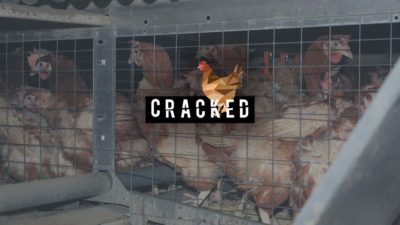The B vitamins

Vitamin B1 (thiamine)
Thiamine helps our bodies use carbohydrates and to form adenosine triphosphate (ATP) the ‘molecular currency’ of energy transfer in our cells.
Signs of deficiency: headache, nausea, fatigue, irritability, depression, forgetfulness, stomach upsets, constipation, poor appetite and weight loss. Severe deficiency can lead to the disease Beriberi, which affects the heart and circulation. People who rely on ready meals, those who avoid cereal products (because of gluten intolerance or following a Paleo diet), may be at risk of falling short.
The best sources: wholegrains (oats, wholemeal bread, wholewheat pasta and brown rice), nutritional yeast, yeast extract (Marmite/Vegemite), acorn squash, sunflower and sesame seeds, tahini (sesame seed paste), corn on the cob, pecans, Brazil nuts, hazelnuts and pulses (peas, beans and lentils).
Do I need a supplement?
No, a healthy vegan diet will cover your needs but if you do take one, avoid taking too much as this might be harmful – 100 milligrams or less a day is unlikely to cause harm.
Vitamin B2 (riboflavin)
Riboflavin is important for growth, healthy eyesight and red blood cell production. It helps us use vitamin B6 and is an antioxidant, protecting our cells and DNA from harmful free radicals.
Signs of deficiency: fatigue, slowed growth, digestive problems, cracks and sores around the corners of the mouth, sore throat, tired eyes and sensitivity to light.
The best sources: yeast extract (Marmite/Vegemite), nutritional yeast, quinoa, muesli, fortified vegan breakfast cereals, fortified soya milk, avocado, almonds, wild rice, mushrooms and mange-tout peas. Low intakes are particularly high among breakfast-skipping teens with one in five teenage girls and one in 12 boys missing out.
Do I need a supplement?
No, a healthy vegan diet can cover your needs.
Vitamin B3 (niacin)
This is essential for many basic reactions in the body and helps to maintain the nervous system and keep our skin healthy.
Signs of deficiency: lesions on skin exposed to sunlight and/or pressure, diarrhoea, in extreme cases loss of mental capacity. Severe deficiency can lead to the disease pellagra, a disease typified by dementia, diarrhoea and dermatitis.
The best sources: nutritional yeast, peanuts, fortified vegan breakfast cereals, quinoa, muesli, yeast extract (Marmite/Vegemite), wild rice, wholewheat spaghetti, corn on the cob, brown rice and acorn squash.
Do I need a supplement?
No, a healthy vegan diet can cover your needs. Taking high doses (over 200 milligrams daily) can cause skin flushes and very high doses (3-6 grams daily) may cause liver damage. Government guidelines say that taking 17 milligrams or less of nicotinic acid or 500 milligrams or less of nicotinamide a day is unlikely to cause any harm.
Vitamin B5 (pantothenic acid)
Pantothenic acid helps build hormones and contributes to a healthy immune system. It’s used to make coenzyme A (CoA), a ‘helper molecule’ crucial for many essential reactions in the body.
Signs of deficiency: feeling tired and dizzy, headaches, mood swings and digestive problems. Deficiency was implicated in the ‘burning feet’ syndrome experienced by malnourished prisoners of war but is now extremely rare.
The best sources are: nutritional yeast, fortified vegan breakfast cereals, avocado, acorn squash, plantain, baked potato, corn on the cob, sweet potato, mushrooms, oranges, mange-tout peas, pecans, oatmeal or rolled oats and chestnuts.
Do I need a supplement?
No, a healthy vegan diet will cover your needs. Government advice says taking 200 milligrams or less a day is unlikely to cause any harm.
Vitamin B6 (pyridoxine)
Pyridoxine helps form haemoglobin – the substance in red blood cells that carries oxygen around the body. It keeps our immune and nervous systems healthy.
Signs of deficiency: very rare but can cause anaemia, scaling on the lips and mouth corners, swollen tongue, depression, confusion, a weak immune system and problems digesting food.
The best sources are: nutritional yeast, muesli, fortified vegan breakfast cereals, avocados, pistachios, wheat germ, acorn squash, banana, quinoa, sunflower seeds, corn on the cob, wholewheat spaghetti, Brussel’s sprouts, spring greens, chestnuts, hazelnuts, oranges, sesame seeds and tahini (sesame seed paste), tomatoes and walnuts.
Do I need a supplement?
No, a healthy vegan diet will cover your needs. Prolonged high intakes – more than 200 milligrams a day – can lead to a loss of feeling in the arms and legs, skin lesions and digestive problems. The Department of Health says people shouldn’t take more than 10 milligrams of vitamin B6 a day in supplements unless advised to by a doctor.
Vitamin B7 (biotin)
Biotin (vitamin B7) plays a central role in fat, sugar and protein metabolism and is good for healthy skin and nails.
Signs of deficiency: hair loss, brittle nails, rashes or other skin problems, depression and exhaustion. Deficiency in infants can cause weak muscles, sluggishness and delayed development.
The best sources are: tempeh (fermented soya beans), peanuts and peanut butter, hazelnuts, almonds, walnuts, pecans and pistachios, muesli, nutritional yeast, oatmeal or rolled oats, mushrooms, avocado, sunflower and sesame seeds, tahini (sesame seed paste), fortified breakfast cereals and wheat germ.
Do I need a supplement?
No, eat a wide variety of plant foods and you will get plenty of biotin. The government says taking 900 milligrams or less a day of biotin in supplements is unlikely to cause any harm. Some medications may affect levels – anti-seizure medications used to treat epilepsy may lower your biotin levels.
Folate (folic acid or vitamin B9)
The words folate is derived from the Latin word folium, which means leaf – giving a clue as to where you find this vitamin. Folate (or folic acid) is crucial for brain and nerve function, production of DNA, cell reproduction and, together with vitamin B12, is needed for building red blood cells. It plays an important role in fertility and women who are pregnant or trying for a baby should take 400 micrograms of folic acid daily until the twelfth week of pregnancy to help prevent neural tube defects.
Government surveys suggest levels are dropping across the population and are very low among certain groups. Almost a third of girls may have low levels, indicating an increased risk of anaemia. Over 90 per cent of women of childbearing age may have folate levels below the threshold, indicating a higher risk of neural tube defects. This doesn’t mean that their babies will be born with defects, just that they are considered to be at a higher risk.
Signs of deficiency: poor growth, loss of appetite, tongue and gum inflammation, cognitive problems, tiredness, blood and digestive disorders.
The best sources: nutritional yeast, edamame, tempeh (fermented soya beans), soya milk, tofu, green vegetables (asparagus, Brussel’s sprouts, spinach, kale, white cabbage, pak choi, rocket, broccoli, lettuce and peas), yeast extract (Marmite/Vegemite), red pepper, fortified breakfast cereal, oranges, beetroot, lentils, acorn squash, wheat germ, sweetcorn, muesli, cherry tomatoes and hazelnuts.
Do I need a supplement?
No, a healthy vegan diet will cover your needs. Taking high doses (more than one milligram a day) over long periods of time can be dangerous and can mask signs of vitamin B12 deficiency, which can lead to nerve damage.
Vitamin B12
Vitamin B12 helps maintains healthy nerve cells and produce DNA. It works with folic acid to make red blood cells and helps iron work better in the body.
B12 is produced by bacteria in soil and water. People (and animals) used to get it from eating food from the ground. However, modern food production is so sanitised we need a supplement. Animal foods contain B12 because animals are fed it in their feed – 80 per cent of global production is in France and over a half of that is used to supplement animal feed. Cut out the middleman and take your own!
Signs of deficiency: tiredness, lack of energy, pins and needles, muscle weakness, depression, impaired memory, understanding and judgement. Low B12 can lead to a raised level of the amino acid homocysteine, which increases the risk of cardiovascular disease. B12 levels can easily be checked by your doctor and any deficiency treated with supplements or a course of injections.
The best sources are: yeast extract (Marmite/Vegemite), nutritional yeast flakes with B12, B12-fortified plant milks, B12-fortified dairy-free yoghurts and desserts, B12-fortified breakfast cereals and B12-fortified margarine. Make sure the ones you buy are fortified with B12 – organic versions are not fortified.
Do I need a supplement?
Yes! Especially if you’re over 50, as absorption declines with age. Viva! Health recommends taking a daily vitamin B12 supplement providing at least 50 micrograms per day, or weekly supplements providing at least 2,000 micrograms. Official recommendations for B12 intake are significantly lower; 1.5 micrograms in the UK, 2.4 micrograms in the US and 4.0 micrograms in Europe (EFSA). Taking up to 2,000 micrograms (2 mg) a day of vitamin B12 is unlikely to cause any harm.
How much of each vitamin do you need?
| Vitamin | Women | Men |
| B1 (thiamine) | 0.8 milligrams a day | 1.0 milligrams a day |
| B2 (riboflavin) | 1.1 milligrams a day | 1.3 milligrams a day |
| B3 (niacin) | 13 milligrams a day | 17 milligrams a day |
| B5 (pantothenic acid) | UK dietary reference values for vitamin B5 have not been set | |
| B6 (pyridoxine) | 1.2 milligrams a day | 1.4 milligrams a day |
| B7 (biotin) | UK dietary reference values for biotin have not been set | |
| B9 (folate or folic acid) | 200 micrograms of folate a day Women who are pregnant or trying for a baby are advised to take 400 micrograms of folic acid daily until the twelfth week of pregnancy | |
| Vitamin B12 | 50 micrograms a day Viva! Health recommends taking a daily vitamin B12 supplement providing at least 50 micrograms per day, or weekly supplements providing at least 2,000 micrograms. | |
Note: A microgram is a millionth of a gram. So we only need a tiny amount of B12 – but getting that small amount is vital.
For more information on each vitamin see our A-Z of Nutrients
This information is written generally for healthy people. It is intended for guidance only and should not be used to replace medical advice. If you have a medical condition, or are taking other drugs or supplements you should consult a doctor before changing your diet. If you have any concerns, please speak to your doctor.




